Biker Babe & Granny

(biker303.jpg)
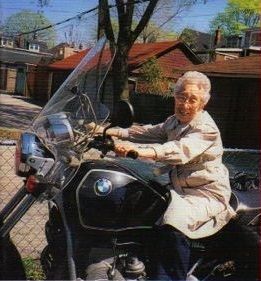
(granny21b.jpg)

(wetsuit.jpg)

(wetsuit3.jpg)

(diane02.gif)
Kato, are you fascinated by biker babes and grannies?

(kato3.gif)
What makes you think so?
What a stupid question! You've just pasted pictures of an attractive biker babe and a biker granny at the top of this page.
Oh, I see...
So, Kato, are you starting to date with grannies as well?
Wnat makes you think so, Diane?
...'Cause there are so many attractive grannies around.

(granny99.jpg)

So, Diane..., you think I'm dating with those attractive grannies, don't you?

Why not?
Oh, ... you must be joking!
Kato, I'm quite serious.
Well ... I've got a reason why I've posted those two pictures above.
Tell me why.
Look at the following screenshot, will ya?

(wp20412f.png)
■"Actual Page"

As of July 31, 2014, fourteen hundred and eighty three Net citizens voted "good" or "excellent" for the above page. These citizens came from all over the world.
Access from Overseas

(wp40612map.png)

(wp40612.png)

I see... So, many people like the above article, don't they?

Yes, they do. And you know what? These folks love your pictures as well.

(biker106.jpg)

(biker105.jpg)

(biker203.jpg)

And they loved to read your email.

(diane25.jpg)
Subj:I'm glad
you got your postcard FINALLY.
From: diane@vancouver.ca
To: barclay1720@aol.com
Date: Tue., Apr 3, 2012 7:31 pm
Pacific Daylight Saving Time
Hello, Kato!
Thanks for the above article and the fascinating information.
It was good to see you this afternoon at Joe Fortes.
The libarian tells me that you're now paying rent and that you're one of their best tenants; quiet, peaceful, intelligent and mindful. Not bad.
There could be worse places to hang out in, that's for sure!
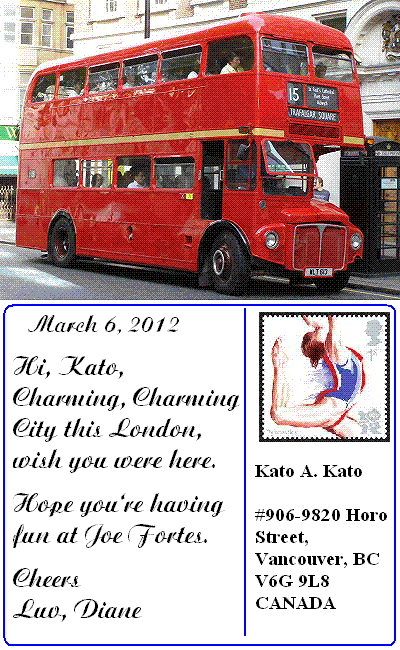
(postcd2.gif)
I'm glad you got your postcard FINALLY.
... seems that everyone I sent those to had the same experience as you did.
They've taken over 20 days to reach Vancouver.
Bit too long, I'd say.

(anbird1.gif)
Did you like the stamp?
I've got a thing for stamps and these are special ones, apparently, and just to be used for postcards.
I thought they were very attractive myself .. unique.
Thanks again for all of this material.
I'm still digesting it ~ you are such a sleuth, kiddo.

(dianelin2.jpg)
Love, Diane ~
SOURCE:"Biker Babe"
(April 12, 2012)

I'm glad to know that they loved it, but how about the biker granny? Who the hell is she?

Good question! Actually, the above granny's picture has been taken from the following book cover.
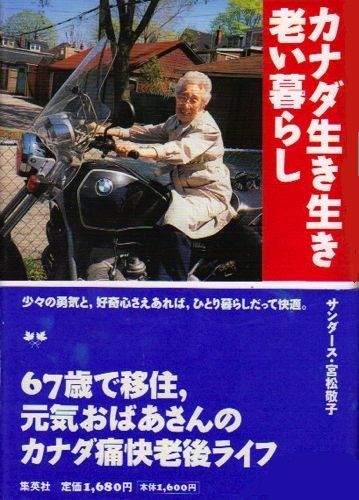
(granny21.jpg)

So, Kato, you read the above book, didn't you?

Yes, I did. I borrowed it from Vancouver Public Library as usual.
Tell me, Kato, what makes you talk about this elderly woman.
I read the following passage.
Fifty Years After WWII
and My Remembrance
A year before the end of the war, my husband was sent to the island of the southern Philippines when a red conscription card was delivered to our home.
We had been married for seven and a half years.
Although I had heard that he was sent to Mindanao island at first, then to Cebu, I hadn't received any letter from my husband.
My husband was a 36-year-old civilian who used to say that he'd like to study painting in Paris aftre the war.
He was kind of a dreamer, I suppose.
Without realizing his dream, however, he died on the battle ground.

(eiffel15.jpg)
I clearly remember the day he went to war with two young men in the neighborhood. 。。。 I carried my 12-month-old daughter on my back while taking the hands of four-year-old son and six-year-old daughter.
With neighbors and send-off friends, we went to the nearby station, but I couldn't find my husband.
I was quite concerned about what happened to my husband.
The departure time of the train was looming, and the send-off party was ready at the platform.
When I went up together, to my surprise, my husband was standing all alone at the end of the long platform.
My husband was a pacifist who hated wars and loved liberty.
Probably because he was forced to go to war, he might have taken such a behavior as a reistance.
My heart really ached whenever I thought about how he could manage to get along with disgruntled sergeants in the army of tough military desciplines.
In March 1946, I received an official notice of my husband's death.
I said to mayself, "My dear... You died because you stood alone at the end of the platform when you went to war."
Two young men who went to war with my husband returend home safely.
My husabnd returned but he turned into a tiny pebble in the urn.
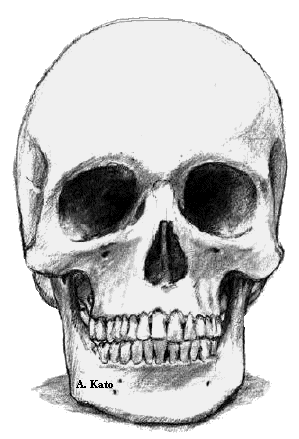
(dokuro3.gif)
I wonder how he died in the southern Philippines.
Since I didn't see his death myself, my thought about his death remains blurred.
。。。
When you encounter an unbearable distress, you can't shed tears.
I had such a first-hand experience when I had to face the death of my husband.
When I received the urn, I had to think about how we would have to survive before I had a time to shed tears.
I had to support my three children and my mother-in-law and father-in-law.
Thinking about the difficulties as well as the chaos in the post-war years, I swore to myself, "I'll support my kids and my in-laws by all means and I'll never let them starve to death."
Such being the case, I did not afford to shed tears.
。。。
Thanks to English I studied hard at the girls' Catholic high school in Yokohama, I started working in a foreign trading company.
Immediately after the war, my father-in-law died unfortunately.
I lived with my mother-in-law for another 25 years.
Although some people made quick money in the post-war mess in many cases, our life with a single bread earner was rather poor.
However, I thanked God for the fact that we were healthy through all these years.
When the occupation authorities returned a Yokohama department store to the Japanese hands, my younger daughter asked me, "What is a department store?"
"It is a store where you can buy anything."
Then my daughter told me, "Mama, please buy me a father."
I was really troubled.
My younger daughter is now living in Toronto, and I live with her family.
I've been here in this city for 18 years since I immigrated to Canada.
I'm now accustomed to a Canadian way of living.
Although I don't have much luxury, I enjoy this moderate lifestyle.
And friendship I have built since I came here is a real asset for the life of an 85-year-old grandmother.
I really appreciate the kindness of my friends.
I lost my husband in the Philippines and my brother in Okinawa.
My "life after the war" or remembrance will be always with me until my death.
At the end, however, I can certainly tell you, "I have no regrets about the fact that the militalistic Japan is gone now."
(translated by Kato)
SOURCE:"Romance in Tough Life"
(『きびしい暮しの中のロマン』)
July 28, 2014
and My Remembrance
A year before the end of the war, my husband was sent to the island of the southern Philippines when a red conscription card was delivered to our home.
We had been married for seven and a half years.
Although I had heard that he was sent to Mindanao island at first, then to Cebu, I hadn't received any letter from my husband.
My husband was a 36-year-old civilian who used to say that he'd like to study painting in Paris aftre the war.
He was kind of a dreamer, I suppose.
Without realizing his dream, however, he died on the battle ground.

(eiffel15.jpg)
I clearly remember the day he went to war with two young men in the neighborhood. 。。。 I carried my 12-month-old daughter on my back while taking the hands of four-year-old son and six-year-old daughter.
With neighbors and send-off friends, we went to the nearby station, but I couldn't find my husband.
I was quite concerned about what happened to my husband.
The departure time of the train was looming, and the send-off party was ready at the platform.
When I went up together, to my surprise, my husband was standing all alone at the end of the long platform.
My husband was a pacifist who hated wars and loved liberty.
Probably because he was forced to go to war, he might have taken such a behavior as a reistance.
My heart really ached whenever I thought about how he could manage to get along with disgruntled sergeants in the army of tough military desciplines.
In March 1946, I received an official notice of my husband's death.
I said to mayself, "My dear... You died because you stood alone at the end of the platform when you went to war."
Two young men who went to war with my husband returend home safely.
My husabnd returned but he turned into a tiny pebble in the urn.

(dokuro3.gif)
I wonder how he died in the southern Philippines.
Since I didn't see his death myself, my thought about his death remains blurred.
。。。
When you encounter an unbearable distress, you can't shed tears.
I had such a first-hand experience when I had to face the death of my husband.
When I received the urn, I had to think about how we would have to survive before I had a time to shed tears.
I had to support my three children and my mother-in-law and father-in-law.
Thinking about the difficulties as well as the chaos in the post-war years, I swore to myself, "I'll support my kids and my in-laws by all means and I'll never let them starve to death."
Such being the case, I did not afford to shed tears.
。。。
Thanks to English I studied hard at the girls' Catholic high school in Yokohama, I started working in a foreign trading company.
Immediately after the war, my father-in-law died unfortunately.
I lived with my mother-in-law for another 25 years.
Although some people made quick money in the post-war mess in many cases, our life with a single bread earner was rather poor.
However, I thanked God for the fact that we were healthy through all these years.
When the occupation authorities returned a Yokohama department store to the Japanese hands, my younger daughter asked me, "What is a department store?"
"It is a store where you can buy anything."
Then my daughter told me, "Mama, please buy me a father."
I was really troubled.
My younger daughter is now living in Toronto, and I live with her family.
I've been here in this city for 18 years since I immigrated to Canada.
I'm now accustomed to a Canadian way of living.
Although I don't have much luxury, I enjoy this moderate lifestyle.
And friendship I have built since I came here is a real asset for the life of an 85-year-old grandmother.
I really appreciate the kindness of my friends.
I lost my husband in the Philippines and my brother in Okinawa.
My "life after the war" or remembrance will be always with me until my death.
At the end, however, I can certainly tell you, "I have no regrets about the fact that the militalistic Japan is gone now."
(translated by Kato)
SOURCE:"Romance in Tough Life"
(『きびしい暮しの中のロマン』)
July 28, 2014

I was really moved by reading the above passage.

Were you? What made you get so moved?
The following part really made me moved.
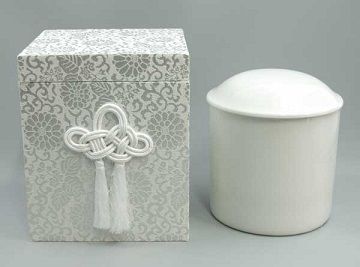
(urn02.jpg)
When I received the urn, I had to think about how we would have to survive before I had a time to shed tears.
I had to support my three children and my mother-in-law and father-in-law.
Thinking about the difficulties as well as the chaos in the post-war years, I swore to myself, "I'll support my kids and my in-laws by all means and I'll never let them starve to death."

(sengo02.jpg)

How come you were so moved by the above passage?

Well ... she said that her favorite movie was "Waterloo Bridge" and that it gave her a lift so that she could put up with the hardship whenever she viewed it. So I borrowed the DVD from Vancouver Public Library and viewed it myself.
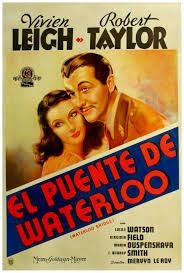
(waterloo2.jpg)

(lib40722.png)
■"Actual Catalogue Page"
"Waterloo Bridge"
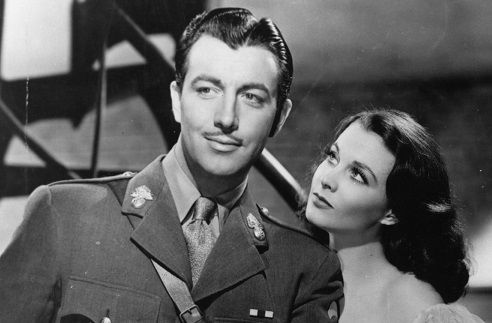
(waterloo3.jpg)
The film opens after Britain's declaration of World War II.
Roy Cronin, an army colonel, is being driven to London's Waterloo Station en route to France, and briefly alights on Waterloo Bridge to reminisce about events which occurred during the First World War when he met Myra Lester, a ballerina, whom he had planned to marry.
Roy and Myra serendipitously meet on Waterloo Bridge and strike up an immediate rapport.
On parting, Myra invites Roy to attend that evening’s ballet performance.
Roy, already enamored with the ballerina, cancels his dinner appointment with a fellow officer to attend the ballet.
At the show’s end, Roy sends a note to Myra to join him for dinner.
The note is intercepted by the directress of the ballet troupe, Madame Olga Kirowa who forbids Myra from continuing her relationship with Roy.
Madame Olga ultimately learns of Myra’s disobedience and dismisses her from the ballet troupe.
Myra and another dancer, Kitty, who has sided with her friend is also asked to leave.
Both young women then join together, sharing a small apartment, and look for work.
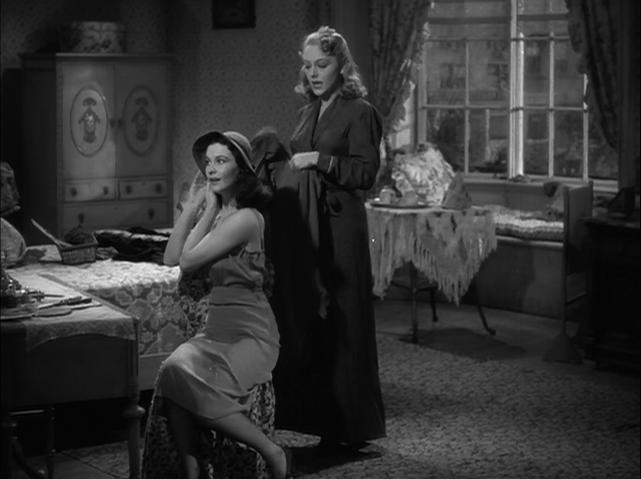
(waterloo4.jpg)
Hours before his planned marriage to Myra, Roy is suddenly deployed to active military duty in France,
but assures Myra that his family will look after her and safeguard her welfare while he is away.
Subsequently, Myra and Roy’s mother, Lady Margaret Cronin, arrange to meet at a fashionable restaurant; their first introduction to each other.
Awaiting Lady Cronin’s very belated arrival, Myra scans a newspaper and faints on seeing the name of her fiancé Roy in a list of war dead.
Dazed by grief and proffered wine, she relates poorly to Roy’s mother in a session of awkward miscommunication.
She is reticent and apprehensive in the presence of the aristocratic, yet kindly Lady Cronin and does not disclose her knowledge of Roy’s reported death.
Lady Cronin gracefully retreats, baffled by Myra’s behavior.
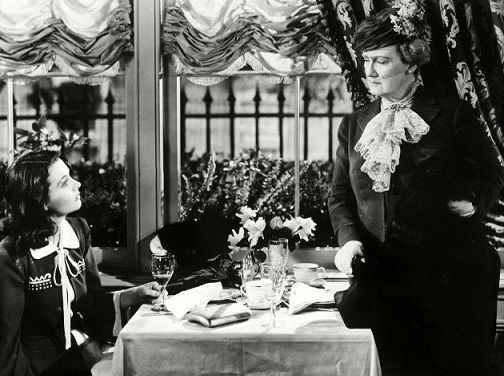
(waterloo5.jpg)
Unable to find employment, Kitty and Myra face a dire financial situation.
Belatedly, Myra, who believed that Kitty was working as a stage performer, learns her friend has been working as a prostitute to support both of them.
Too proud to reach out to Roy’s mother for help, the heartbroken Myra finds it necessary to join her friend Kitty in the same profession.
A year passes.
While offering herself to departing and arriving soldiers at Waterloo Station, Myra catches sight of an arriving Roy, who is alive and well.
He had been wounded and interned in a POW camp for year.
A reconciliation occurs; a joyous one for Roy, a bittersweet one for Myra.
The couple visit Roy's mother at their estate in Scotland, where Myra, guilt-ridden, is confronted by the impossibility of a happy marriage to Roy.
Her career of prostitution has made her feel she is beyond redemption, unworthy of Roy’s love.
Myra discloses her story to Roy's mother, who is sympathetic, but Myra tells her she cannot do Roy the injustice and then leaves Roy a goodbye note, and goes away 'forever', returning to London.
Roy follows, and with the aid of Kitty, looks for her, finally discovering the truth in the process.
Meanwhile, Myra, depressed, reminiscing on and then traversing Waterloo Bridge, the location where the love affair began, takes her own life by walking into the path of a moving truck.
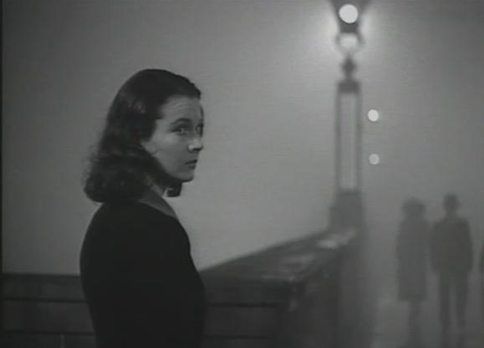
(waterloo9.jpg)
SOURCE:"Waterloo Bridge (1940 film)"
From Wikipedia, the free encyclopedia

(waterloo3.jpg)
The film opens after Britain's declaration of World War II.
Roy Cronin, an army colonel, is being driven to London's Waterloo Station en route to France, and briefly alights on Waterloo Bridge to reminisce about events which occurred during the First World War when he met Myra Lester, a ballerina, whom he had planned to marry.
Roy and Myra serendipitously meet on Waterloo Bridge and strike up an immediate rapport.
On parting, Myra invites Roy to attend that evening’s ballet performance.
Roy, already enamored with the ballerina, cancels his dinner appointment with a fellow officer to attend the ballet.
At the show’s end, Roy sends a note to Myra to join him for dinner.
The note is intercepted by the directress of the ballet troupe, Madame Olga Kirowa who forbids Myra from continuing her relationship with Roy.
Madame Olga ultimately learns of Myra’s disobedience and dismisses her from the ballet troupe.
Myra and another dancer, Kitty, who has sided with her friend is also asked to leave.
Both young women then join together, sharing a small apartment, and look for work.

(waterloo4.jpg)
Hours before his planned marriage to Myra, Roy is suddenly deployed to active military duty in France,
but assures Myra that his family will look after her and safeguard her welfare while he is away.
Subsequently, Myra and Roy’s mother, Lady Margaret Cronin, arrange to meet at a fashionable restaurant; their first introduction to each other.
Awaiting Lady Cronin’s very belated arrival, Myra scans a newspaper and faints on seeing the name of her fiancé Roy in a list of war dead.
Dazed by grief and proffered wine, she relates poorly to Roy’s mother in a session of awkward miscommunication.
She is reticent and apprehensive in the presence of the aristocratic, yet kindly Lady Cronin and does not disclose her knowledge of Roy’s reported death.
Lady Cronin gracefully retreats, baffled by Myra’s behavior.

(waterloo5.jpg)
Unable to find employment, Kitty and Myra face a dire financial situation.
Belatedly, Myra, who believed that Kitty was working as a stage performer, learns her friend has been working as a prostitute to support both of them.
Too proud to reach out to Roy’s mother for help, the heartbroken Myra finds it necessary to join her friend Kitty in the same profession.
A year passes.
While offering herself to departing and arriving soldiers at Waterloo Station, Myra catches sight of an arriving Roy, who is alive and well.
He had been wounded and interned in a POW camp for year.
A reconciliation occurs; a joyous one for Roy, a bittersweet one for Myra.
The couple visit Roy's mother at their estate in Scotland, where Myra, guilt-ridden, is confronted by the impossibility of a happy marriage to Roy.
Her career of prostitution has made her feel she is beyond redemption, unworthy of Roy’s love.
Myra discloses her story to Roy's mother, who is sympathetic, but Myra tells her she cannot do Roy the injustice and then leaves Roy a goodbye note, and goes away 'forever', returning to London.
Roy follows, and with the aid of Kitty, looks for her, finally discovering the truth in the process.
Meanwhile, Myra, depressed, reminiscing on and then traversing Waterloo Bridge, the location where the love affair began, takes her own life by walking into the path of a moving truck.

(waterloo9.jpg)
SOURCE:"Waterloo Bridge (1940 film)"
From Wikipedia, the free encyclopedia

Ummmm... sounds quite tragic yet interesting. I think I'm gonna borrow the DVD. Kato, why do you think this movie becomes the granny's favorite?

Well ... you see, the granny had to support three children and two in-laws during the difficulties and chaos in the post-war era, and she did that by all means without working on the street like Kitty and Myra.
I see... she feels self-satisfied and assured that she did the right thing whenever she views the movie. Is that all?
No, that's not all. For the granny, Robert Taylor talks to her like her late husband, who is liberal-minded and kind-hearted. So, she seems to be with the late husband whenever she watches the movie.
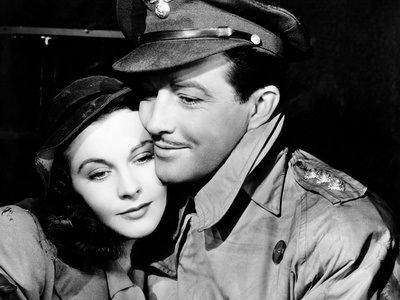
(waterloo6.jpg)

(laugh16.gif)
【Himiko's Monologue】

(himiko22.gif)
How romantic it is!
Romance, however, doesn't fill up your stomach.
I'm now quite hungry.
During the summer vacation, Diane enjoyed a mind-blowing duck lunch in a French medieval village.

(duck21.jpg)
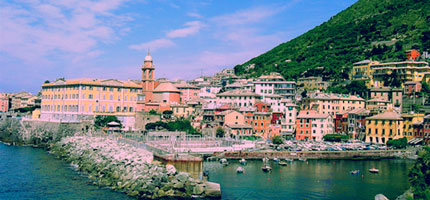
(ventimig2.jpg)
Diane also enjoyed pasta dinner.

(pastadin.jpg)
The duck dish looks great, and the pasta seems delicious,
but I'd rather eat some sushi now.
How about you?
Do you like sushi?
I'm sure you do.
Why don't you make California rolls?
I'll show you how to make those rolls.
California Rolls
An Easy Sushi Recipe
Now, you know how to do it.
Enjoy it to the hilt.
In any case, I hope Kato will write another interesting article soon.
So please come back to see me.
Have a nice day!
Bye bye ...

(hand.gif)

(himiko22.gif)
How romantic it is!
Romance, however, doesn't fill up your stomach.
I'm now quite hungry.
During the summer vacation, Diane enjoyed a mind-blowing duck lunch in a French medieval village.

(duck21.jpg)

(ventimig2.jpg)
Diane also enjoyed pasta dinner.

(pastadin.jpg)
The duck dish looks great, and the pasta seems delicious,
but I'd rather eat some sushi now.
How about you?
Do you like sushi?
I'm sure you do.
Why don't you make California rolls?
I'll show you how to make those rolls.
California Rolls
An Easy Sushi Recipe
Now, you know how to do it.
Enjoy it to the hilt.
In any case, I hope Kato will write another interesting article soon.
So please come back to see me.
Have a nice day!
Bye bye ...

(hand.gif)

(renge400.jpg)
If you've got some time,
Please read one of the following artciles:

(juneswim.jpg)
■"Go Bananas"
■"Manwatching"
■"Stanley Boardwalk"
■"With Your Tiger"
■"A Second World"
■"Asexual Thought"

(biker302.jpg)
■"Stanley 125 Years"
■"Sushi @ the Globe"
■"Peace@Syria & Pentagon"
■"Sweet Memory"
■"Unforgettable Movies"
■"Typhoon 26"
■"Great Luck"
■"Diane@World"
■"Diane@Spam"
■"Sabina"
■"Happy New Year"
■"Merange & Sabina"
■"Beauty in Spa"
■"Love @ e-reading"
■"Troublesome Slang"
■"World Family"
■"Mari's Bagels"
■"Love & Loyalty"
■"Another Cinderella"
■"Amazing Two-legged Pooch"
■"Delusive Romance"
■"Royal Couple"
■"Life with Music"
■"Poutine@Canada"
■"Glorious Summer"

(surfin2.gif)

(bare02b.gif)
Hi, I'm June Adams.
The contemporary version, internationally known as "sushi", was created by Hanaya Yohei (1799–1858) at the end of the Edo period in Tokyo.
Sushi invented by Hanaya was an early form of fast food that was not fermented (therefore prepared quickly) and could be conveniently eaten with one's hands.
Originally, this sushi was known as Edomae zushi because it used freshly caught fish in the Edo-mae (Edo Bay or Tokyo Bay).
Though the fish used in modern sushi no longer usually comes from Tokyo Bay, it is still formally known as Edomae nigiri-zushi.
I like temaki sushi.
It is easy to make.
Here are the step-by-step instructions.

(sushi802.jpg)
Temaki Sushi
ところで、愛とロマンに満ちた
レンゲさんのお話をまとめて
『レンゲ物語』を作りました。
もし、レンゲさんの記事をまとめて読みたいならば、
次のリンクをクリックしてくださいね。
■『愛とロマンのレンゲ物語』

(renge730.jpg)
■『軽井沢タリアセン夫人 - 小百合物語』
とにかく、今日も一日楽しく愉快に
ネットサーフィンしましょうね。
じゃあね。

(bikini901b.jpg)

(dogs17.gif)

(girlxx.gif)





0 件のコメント:
コメントを投稿